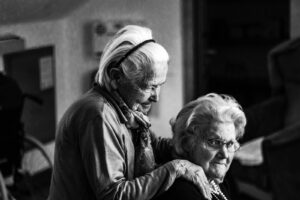Social media used to boost cancer screening rates
A breast screening service in Stoke-on-Trent saw a 12.9% increase in people taking up screening invitations after practice staff were given social media training.
Nationally, uptake of invitations for breast screening are in decline, with the proportion of women aged 50-70 taking up routine breast screening invitations falling to 70.5%, just 0.5% above the acceptable level of uptake, in 2017-18, down from 71.1% in 2016-17 and from 73.2% in 2007-08, according to NHS England.
In a bid increase attendance, the staff at the North Midlands Breast Screening Service in Stoke-on-Trent were given social media training as part of a pathfinder project run by charity Good Things Foundation and NHS Digital, aimed at making digital health services and information accessible to the most excluded people in society.
The staff used their training to create a Facebook page where they posted information about screening and to manage the Facebook Messenger service, which enabled women to easily make appointments and ask questions about the screening process.
A spokesman for NHS digital said, following the launch of the page, attendance for first-time appointments at the North Midlands Breast Screening Service increased by an average of 12.9% between three-year screening cycles from 2014 to 2018. The service has also shot up the league table for uptake levels, going from 58th to 11th in the country between 2016-17 and 2017-18.
IT and communications officer Cath McLennan said the training gave her the skills to post on the practice’s page with confidence. She said:
‘It was absolutely amazing – now I aim for each of our posts to reach at least 1,000 people to get information to our patients.
‘We’ve also seen a positive impact as more women have attended for screening. I really enjoy supporting health and promoting the practice through social media.’
A spokesman for NHS digital said the same techniques are now being adopted elsewhere in the country, with 350 general practice nurses and other practice staff received training in adopting technology, including learning how social media can help promote practice services, so far.
Manveet Basra, head of public health and wellbeing at Breast Cancer Now, said developing and rolling out initiatives to improve uptake needs to be a priority. She said:
‘With breast screening uptake continuing to fall, it’s really encouraging that new initiatives including digital innovation are being trialled to reverse this trend. We look forward to these being evaluated and rolled out more widely, to help more women make breast screening a part of their lives.
‘The NHS Breast Screening Programme is critical to early diagnosis in this country, preventing 1,300 deaths from breast cancer each year. It’s absolutely vital that women are informed about the benefits and risks of screening, so it’s great that this scheme could help more women understand and ask questions about the screening process at the touch of a button.
‘As highlighted by the recent major independent NHS screening review, developing and rolling out initiatives to improve uptake needs to be a high priority, as the earlier breast cancer is diagnosed, the more likely treatment is to be successful.
‘We now look forward to the report’s recommendations being implemented as quickly as possible, and hope they will be supported by investment and a sustained focus on screening.’
Photo Credit – Pixabay
















